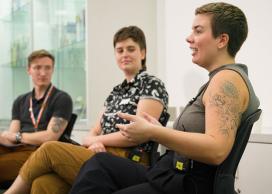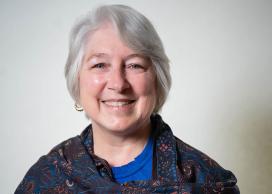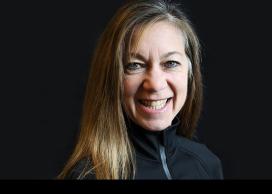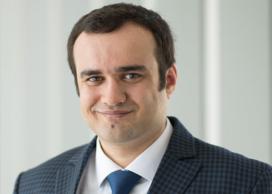Research in focus: Naznin Virji-Babul
Learn more about the work of our researchers at UBC

January 17, 2022
Name:
Naznin Virji-Babul
My pronouns:
she/her
Title:
Associate Professor and Senior Advisor to the Provost on Women and Gender-Diverse Faculty
Department/Unit:
Medicine/Physical Therapy
Location:
Vancouver/Djavad Mowafaghian Centre for Brain Health
What year did you start working at UBC?
2010
Provide an overview of your research in 75 words or less:
My research in cognitive neuroscience has two streams: (1) Basic science studies to understand brain structure and function and (2) Applied research studies to identify early indicators of concussion/mild traumatic brain injury in adolescents and developing effective methods to improve recovery from brain injury. The basic science research informs the applied work on concussion; in turn, understanding the effects of injury drives innovation to better understand and generate questions on fundamental aspects of brain development.
What first motivated you (or motivates you) to conduct your research?
The more I learn about the brain, the more questions I have. Learning about the brain and understanding a tiny part of how the brain works during development and as a consequence of injury, requires creativity, persistence and passion. In addition, collaborating and working with students and other researchers who approach the questions from very different perspectives is exhilarating!
What do you hope will change as a result of this research?
Currently, concussion diagnosis relies on subjective reporting of signs and symptoms. However, it is becoming increasingly clear that symptoms do not directly correlate to changes in the brain and that changes in the brain persist well beyond symptomatic recovery. This disconnect creates a lot of confusion and frustration for many individuals with concussion. My hope is that our work will provide objective, brain-based information for researchers, clinicians as well as individuals who have had concussions.
What have you learned during your research that has surprised you the most?
I have really been touched by the stories I hear from all the individuals who have had a concussion and their families. Their commitment and dedication to taking part in research studies that will not necessarily have an impact on their own recovery – but will help others, has been outstanding!
Describe any interesting research milestones you are approaching
I am collaborating with researchers to apply and test a deep learning neural network to automatically classify concussed athletes using raw, resting state EEG signals. During rigorous testing, the classifier consistently identified concussions with an accuracy of >90%. We now have a second paper showing that we achieve the same results using only 6 sensors. This is a major milestone towards the development of an easy-to-use, brain-based, automatic classification of concussion at an individual level.
- Our people
- Research
- Research in focus






